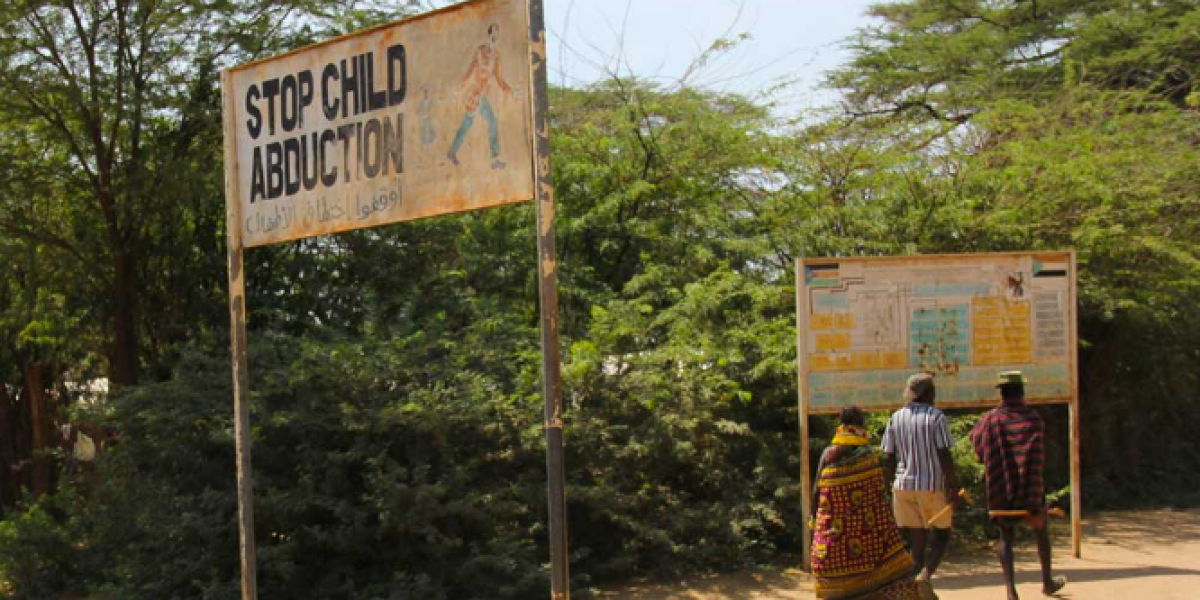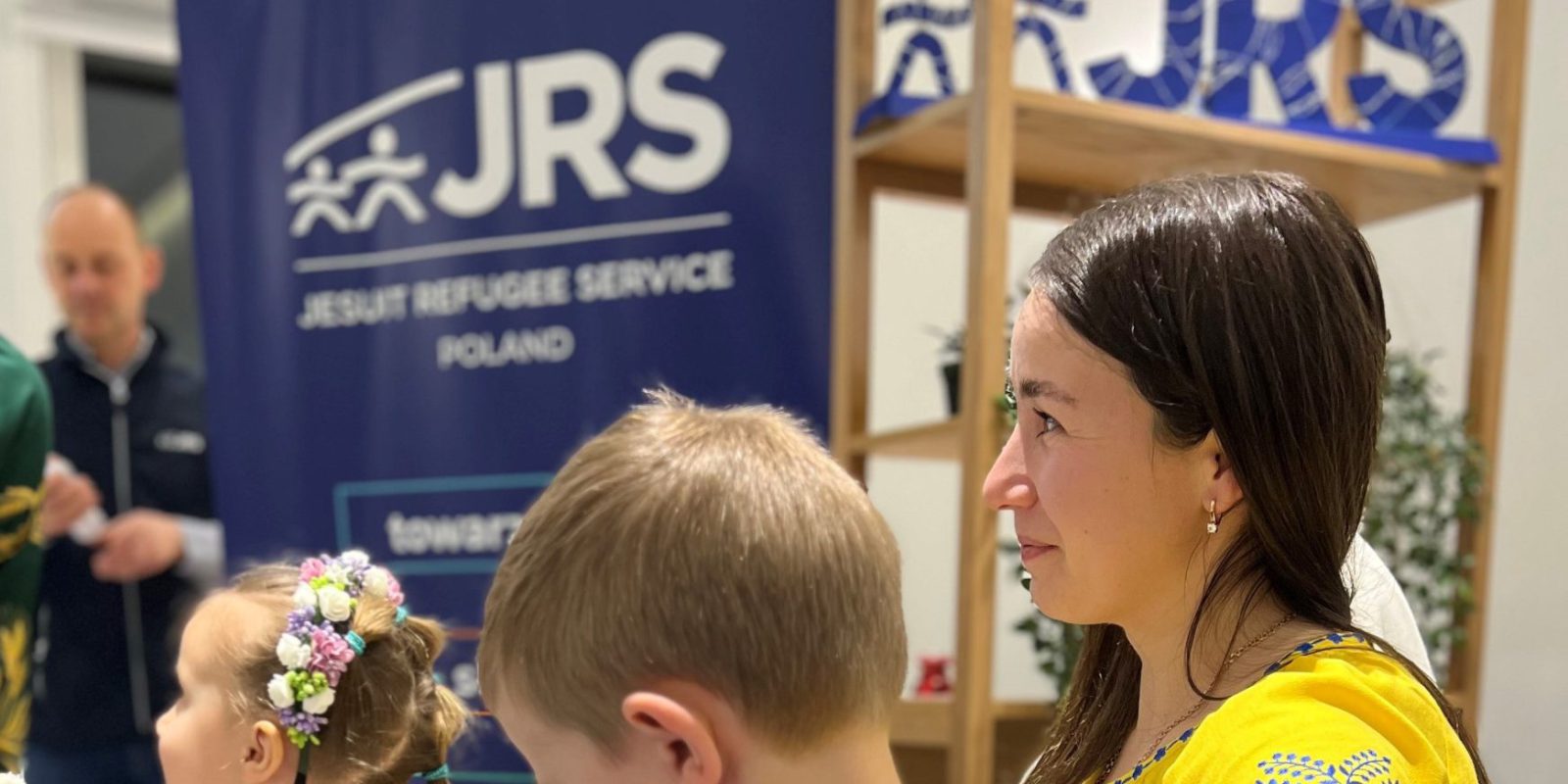Kenya: Finding Purpose Through Healing Others
17 December 2014

Grace* has lived in Kakuma refugee camp for almost as long as the camp has been in existence. She has witnessed her fellow South Sudanese refugees come and go and come back again after each bout of conflict. While she has stayed safe from a damaging war, she has not been immune from a cycle of domestic abuse common for many women refugees.
As a participant in the JRS Safe Haven program in the camp, she has found a safe space to heal and to gain skills which give her purpose and strength to persevere.
Grace’s Story
My parents came to Kakuma refugee camp in 1992 when the camp first opened; and they had me just one year later. They fled Sudan – at that time South Sudan didn’t exist – seeking safety from the war. Life in the camp hasn’t been very good.
I remember when I was a kid, the UN refugee agency (UNHCR) could provide us with more support than we get now, probably because there were fewer refugees. For a long time we were given everything we needed, even sugar. But as more refugees came to the camp, rations were reduced, and things changed.
In 2007, as the situation at home began to stabilize, most Sudanese refugees went back, UNHCR repatriated those who wanted to return. However, by then, my father had died and, in my culture, this meant that his brother would get the right to take my mother and his other wives. My mom didn’t have a good relationship with my uncle or the other wives, so if we went back we would have no one to take care of us. We no longer had a home in Sudan.
Treated Like Property
My uncle in South Sudan still feels like he owns us, though. In 2008, he tried to marry me off to an old man who had a lot of money and cattle. You see, in my culture when a person has a lot of money, old or young, he can have any woman he wants.
My father’s family, especially my uncle, don’t value my education. Only I know it is the most important thing for my future. They just wanted to sell me to make money. So they came to Kakuma and abducted me by force. They took me to the border of Sudan and Kenya, but [fortunately] I snuck away and back to the camp with the help of some policemen, who also arrested my uncle.
Two years later, they tried again, telling me they were going to take me to Nairobi to go to school. I thought that maybe they had changed their minds. In Nairobi, they forced me onto a plane to Sudan and gave me to that old man. When I got there, [I discovered] he already had three wives. He tied me up so I wouldn’t leave, but after two weeks again I managed to escape. Good-hearted people at bus stops helped me to leave, to get in touch with UNHCR that arranged transport for me back to Kakuma.
My uncle sent another person to come and get me, and this time they threatened to kill me if I refused to go back to Sudan. I decided, then, that my only hope out of this situation was to marry someone else. I was afraid living alone and thought this would stop them from bothering me.
They still didn’t stop, though, and tried to get my husband to pay the same dowry the older man in Sudan would’ve paid, but my husband is also a refugee and he couldn’t afford such a high dowry. They gave me an ultimatum: leave my husband to marry this older man or sell my new-born boy for 40 cows. This created problems in my marriage and my husband began being abusive with me.
To protect myself and my child, I reported the situation to the gender protection unit in Kakuma. They took me to the JRS Safe Haven where I’ve lived for last two years. Women are only supposed to stay in the safe haven for six months; but my case still hasn’t been resolved. I can’t move about freely, nor can I live here forever. But for the time being there is a guard to protect me.
Purpose Through Alternative Healing
Since arriving here, I have tried to improve my situation and that of others. I joined the JRS alternative healing team, using massage and reflexology to help other refugees deal with emotional stress disorders. This gives me purpose.
When someone is stressed, their muscles become tense, and massages, which isolate soft tissues, can really help them to feel better and think more clearly. We practice all types of massage. Swedish massage helps people relax when they are tired but unable to sleep, deep tissue massage treats extreme painful areas of the body, and herbal massages and aromatherapy are natural ways to relax.
Reflexology is also a powerful way of preventing disease, including depression and of helping treat pain throughout the body. By pressing on certain pressure points in someone’s hand or foot you can treat areas of the body linked to specific energy lines, running from head to feet.
I also lead a team teaching community members massage techniques so they can serve other refugees in the camp. I feel happy when I see people benefitting from our massages. I want to help them overcome their trauma, it also helps me to address my challenges.
*Name has been changed for reasons of security



